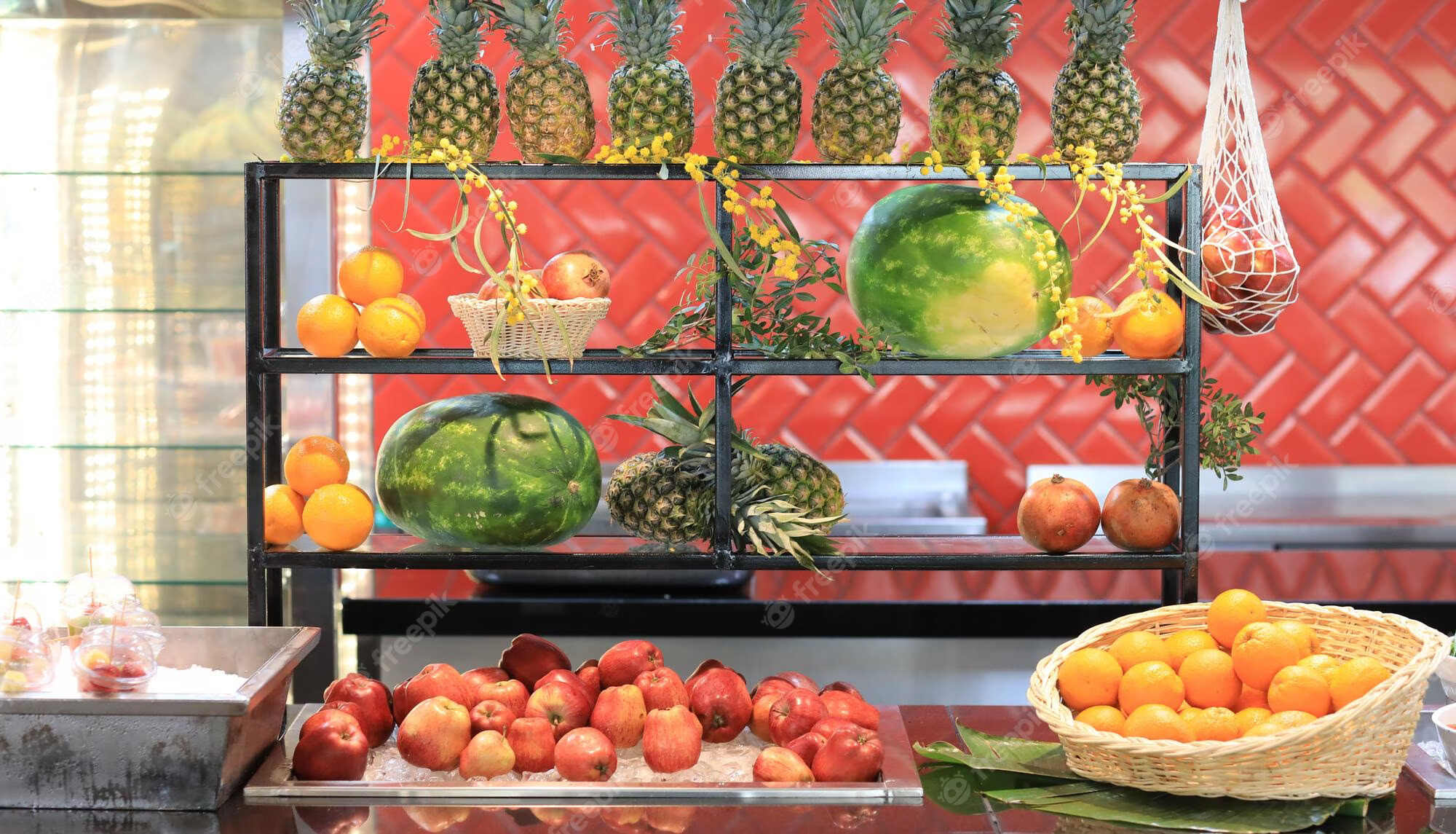

Articles
How To Store Fruit On Counter
Modified: February 23, 2024
Discover effective ways to store fruit on your counter with these informative articles. Find out how to keep your fruit fresh and delicious for longer periods of time.
(Many of the links in this article redirect to a specific reviewed product. Your purchase of these products through affiliate links helps to generate commission for Storables.com, at no extra cost. Learn more)
Introduction
Welcome to the world of fruit storage! When it comes to preserving the freshness and flavor of your favorite fruits, proper storage is key. While many fruits are typically stored in the fridge, there are certain varieties that actually thrive when stored on the counter. In this article, we will explore the benefits of storing fruit on the counter, the factors to consider before choosing fruit for counter storage, the best fruits to store on the counter, and some general tips for storing fruit on the counter.
Key Takeaways:
- Elevate your fruit-eating experience by storing certain fruits on the counter. Enjoy enhanced ripening, better flavor, and increased vitamin content while adding a burst of freshness to your kitchen.
- Properly prepare and store fruits on the counter to maximize their shelf life and flavor. Follow key factors and general tips to ensure successful fruit storage and enjoy nature’s sweet creations.
Read more: How To Store Produce On Counter
Benefits of Storing Fruit on the Counter
Storing fruit on the counter offers several advantages that can enhance your overall fruit-eating experience.
- Enhanced Ripening: Placing fruit on the counter allows it to ripen at its own pace. The natural warmth of the room accelerates the ripening process, resulting in sweeter and juicier fruit. This is particularly true for fruits like bananas, peaches, and avocados.
- Better Flavor and Aroma: Fruits that are allowed to ripen fully on the counter tend to have more robust flavors and enticing aromas. The natural sugars in the fruit have time to develop, enhancing both taste and fragrance.
- Easier Access and Visibility: Keeping fruit on the counter makes it easily accessible for quick snacking. When fruit is readily available, you’re more likely to reach for a healthy option rather than grabbing a less nutritious snack.
- Visual Appeal: A colorful fruit bowl or a bunch of vibrant fruits on the counter can add a burst of freshness and beauty to your kitchen. It not only elevates the aesthetics but also serves as a constant reminder to prioritize healthier food choices.
- Increased Vitamin Content: Certain fruits, such as oranges and lemons, can lose some of their vitamin C content when stored in the fridge. By storing them on the counter, you can preserve the vitamin content and enjoy the maximum nutritional benefits.
While these benefits make a strong case for storing fruit on the counter, it’s important to note that not all fruits are suitable for this type of storage. Let’s dive into the factors you should consider before choosing fruits for counter storage.
Factors to Consider before Choosing Fruit for Counter Storage
While storing fruits on the counter can be beneficial, it’s important to consider several factors before deciding which fruits to keep out of the fridge.
- Ripening Process: Different fruits have different ripening processes. Some fruits continue to ripen after being harvested, while others do not. Understanding how a particular fruit ripens will help you determine if it’s suitable for counter storage. For example, fruits like bananas and avocados can ripen well on the counter, while berries and citrus fruits are better suited for refrigeration.
- Susceptibility to Spoilage: Some fruits are more prone to spoilage and should be stored in the fridge to extend their shelf life. Delicate fruits like berries, cherries, and grapes tend to deteriorate quickly when left on the counter and are best stored in the fridge to maintain their freshness.
- Temperature and Humidity: Most fruits thrive in room temperature with moderate humidity. However, certain fruits, such as apples and pears, can release ethylene gas which can speed up the ripening process of nearby fruits. It’s important to consider the compatibility of different fruits when storing them together on the counter.
- Peak Freshness: If you want to enjoy fruits at their peak freshness, it’s crucial to monitor their ripeness closely. Some fruits, like peaches and plums, should be kept on the counter until they reach their desired ripeness, and then promptly consumed or transferred to the fridge to prevent over-ripening.
- Personal Preference: Lastly, your personal taste preferences play a role in determining which fruits you prefer to store on the counter. Some people enjoy the natural sweetness and juiciness of fully ripened counter-stored fruits, while others prefer the cool crispness of chilled fruits from the refrigerator.
Considering these factors will help you make informed decisions about which fruits are best suited for counter storage. Now that we have covered the factors to consider, let’s explore the best fruits to store on the counter.
Best Fruits to Store on the Counter
While not all fruits are ideal for counter storage, some varieties thrive in this environment and maintain their flavor and freshness. Here are some of the best fruits to store on the counter:
- Bananas: Bananas are perhaps the most well-known fruit to store on the counter. They continue to ripen after being harvested and develop a sweeter taste as they turn yellow with brown spots. If you prefer an even softer and sweeter banana, you can let it ripen further on the counter.
- Avocados: Avocados are another fruit that benefits from counter storage. They are typically purchased when they are still firm and unripe. Placing them on the counter will allow them to gradually ripen to the desired tenderness.
- Citrus Fruits: Oranges, lemons, limes, and grapefruits can all be stored on the counter. They have a longer shelf life, and their flavors are not compromised by counter storage. Moreover, storing citrus fruits at room temperature can make them juicier and easier to squeeze.
- Stone Fruits: Peaches, plums, nectarines, and apricots are great candidates for counter storage. These fruits continue to ripen after being picked, and the counter allows them to develop their natural sweetness and aroma.
- Pineapple: Pineapples are tropical fruits that should be stored on the counter until they are fully ripe. Once ripe, you can refrigerate them to slow down the ripening process and enjoy them chilled.
- Mangoes: Mangoes can be stored on the counter until they reach the desired ripeness. Once ripe, you can refrigerate them to extend their freshness for a few more days.
- Tomatoes: Although botanically classified as a fruit, tomatoes are commonly stored on the counter. Refrigerating tomatoes can affect their texture and taste, so it’s best to keep them at room temperature until they are fully ripe.
These are just a few examples of fruits that can thrive when stored on the counter. Remember to monitor their ripeness and consume them promptly to enjoy them at their peak flavor. Now that you know which fruits are ideal for counter storage, let’s discuss how to properly prepare them for this storage method.
Store fruit on the counter away from direct sunlight and heat. Keep them separate to prevent overripening and spoilage. Check regularly for ripeness and consume or refrigerate as needed.
Properly Preparing Fruit for Counter Storage
Properly preparing your fruit before placing it on the counter can help extend its shelf life and maintain its quality. Here are some steps to follow:
- Inspect for Bruises or Damage: Before storing the fruit, examine it for any bruises, cuts, or signs of rot. Remove any damaged pieces, as they can accelerate the spoilage process.
- Wash and Dry: Rinse the fruit under cool water to remove any dirt or residue. Gently pat it dry with a clean towel to remove excess moisture. This step is particularly important for fruits like berries, which can be delicate and prone to mold if stored wet.
- Separate Overripe or Damaged Fruit: If you have a mixture of ripe and unripe fruit, separate the overripe or damaged ones. Overripe fruit can release ethylene gas, which can cause nearby fruit to ripen and spoil faster.
- Avoid Stacking or Overcrowding: Allow your fruit to have some breathing room. Avoid stacking or overcrowding them in a fruit bowl or countertop display. Air circulation around the fruit helps maintain its freshness and prevents the growth of mold.
- Store in a Suitable Container: If you prefer to store your fruit in a container, choose one that allows for proper ventilation. Opt for a fruit bowl with holes or a wire basket, which allows air to circulate around the fruit.
- Check and Rotate: Regularly check your fruit for any signs of spoilage or decay. It’s also a good idea to occasionally rotate the fruit in the bowl, as the bottom fruits may become squished or bruised over time.
- Consume Promptly: Lastly, remember to consume your counter-stored fruit promptly. As fruit ripens, it becomes more susceptible to spoilage. Enjoy them at their optimal ripeness to savor their flavors and nutritional benefits.
By following these preparation tips, you can help maintain the quality and freshness of your counter-stored fruit. However, it’s important to note that different fruits have varying shelf lives and may require different storage methods. Let’s move on to some general tips for storing fruit on the counter.
Read more: How To Store Dates Fruit
General Tips for Storing Fruit on the Counter
Here are some general tips to ensure successful fruit storage on the counter:
- Keep Away from Direct Sunlight: While it may be tempting to place your fruit bowl near a sunny window, direct sunlight can cause the fruit to overheat and ripen too quickly. Choose a spot on the counter that is away from direct sunlight.
- Avoid Heat Sources: Similarly, keep your fruit away from heat sources like the stove or oven. Excess heat can speed up the ripening process and lead to premature spoilage.
- Monitor the Environment: Ensure the room where you’re storing your fruit has moderate humidity and a consistent temperature. Extreme fluctuations in temperature and humidity can impact the condition of the fruit.
- Separate Ethylene-Producing Fruits: As mentioned earlier, some fruits produce ethylene gas, a natural ripening agent. To prevent the accelerated ripening of nearby fruits, store ethylene-producing fruits like apples and pears away from other fruits.
- Consider Ripening Time: If you have a mixture of ripe and unripe fruit, consider the ripening time for each fruit. If you want some fruit to ripen quickly, store them together with ethylene-producing fruits. If you want to slow down the ripening process, store them separately or in the fridge.
- Rotate and Consume: To ensure even ripening and prevent fruit from getting squished or bruised, regularly rotate the fruit in your fruit bowl. Additionally, consume the ripe fruit promptly to avoid wastage and prevent spoilage.
- Adjust Storage Methods: Be aware that as fruits ripen, their optimal storage conditions can change. Pay attention to the changes in texture and aroma, and adjust your storage method accordingly. For example, you may need to transfer some fruits to the fridge once they reach their desired ripeness.
By following these tips, you can maximize the shelf life, flavor, and freshness of your counter-stored fruits. Remember to be mindful of the different characteristics and storage requirements of each fruit. Now that you have a better understanding of storing fruit on the counter, let’s wrap up.
Conclusion
Storing fruit on the counter can be a rewarding experience, as it allows you to enjoy the full flavor and freshness of certain fruits. From bananas and avocados to citrus fruits and stone fruits, there are plenty of options to choose from when deciding which fruits to store on the counter. Taking into consideration factors like ripening process, susceptibility to spoilage, temperature, and personal preference can help you make informed decisions.
Properly preparing your fruit for counter storage, such as inspecting for damage, washing and drying, and avoiding stacking or overcrowding, can aid in extending the shelf life and maintaining quality. Regularly monitoring the fruits, keeping them away from direct sunlight and heat sources, and separating ethylene-producing fruits are all important practices to ensure successful storage. Additionally, adjusting storage methods as the fruit ripens and consuming it promptly will help you enjoy the fruit at its peak freshness.
By understanding the benefits of storing fruit on the counter and implementing the right storage techniques, you can elevate your fruit-eating experience. The enhanced ripening, better flavor and aroma, easy access, visual appeal, and increased vitamin content are all reasons why counter storage can be advantageous. However, it’s important to note that not all fruits are suitable for this type of storage, so it’s essential to assess each fruit individually.
Whether you prefer the convenience of grabbing a perfectly ripened banana or the juiciness of a room-temperature orange, storing fruit on the counter offers a delightful way to enjoy nature’s sweet creations. So, go ahead and experiment with different fruits, follow the proper storage methods, and savor the vibrant flavors that counter-stored fruit has to offer.
Frequently Asked Questions about How To Store Fruit On Counter
Was this page helpful?
At Storables.com, we guarantee accurate and reliable information. Our content, validated by Expert Board Contributors, is crafted following stringent Editorial Policies. We're committed to providing you with well-researched, expert-backed insights for all your informational needs.
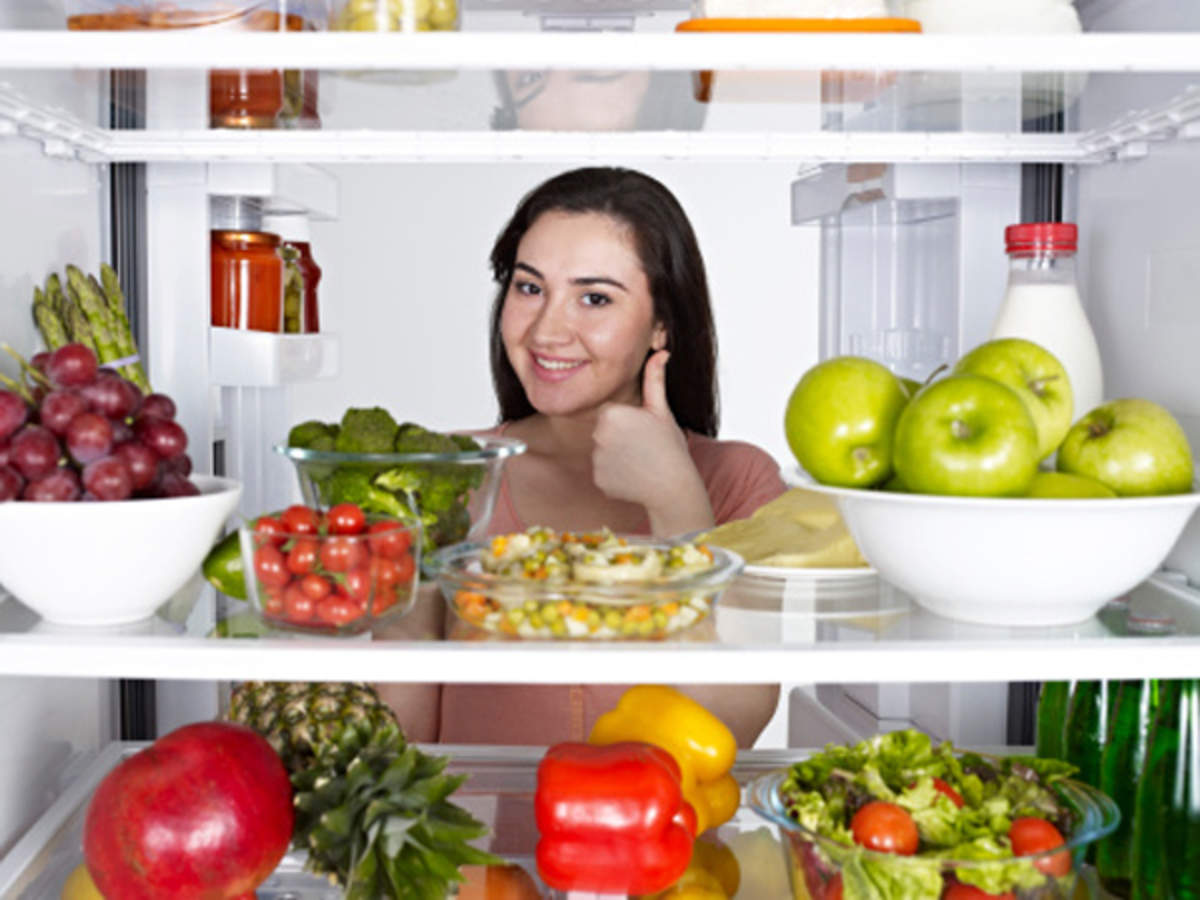
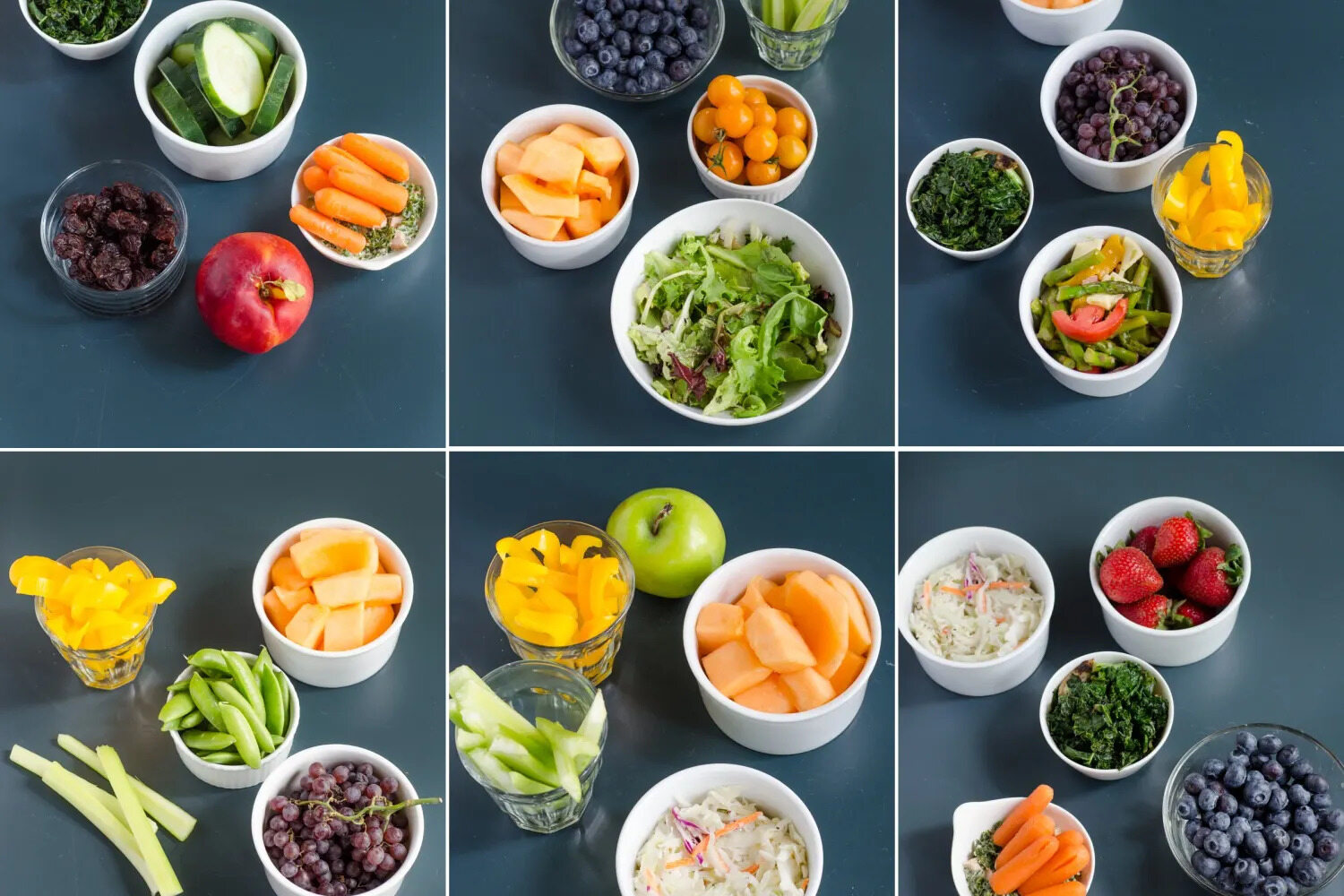
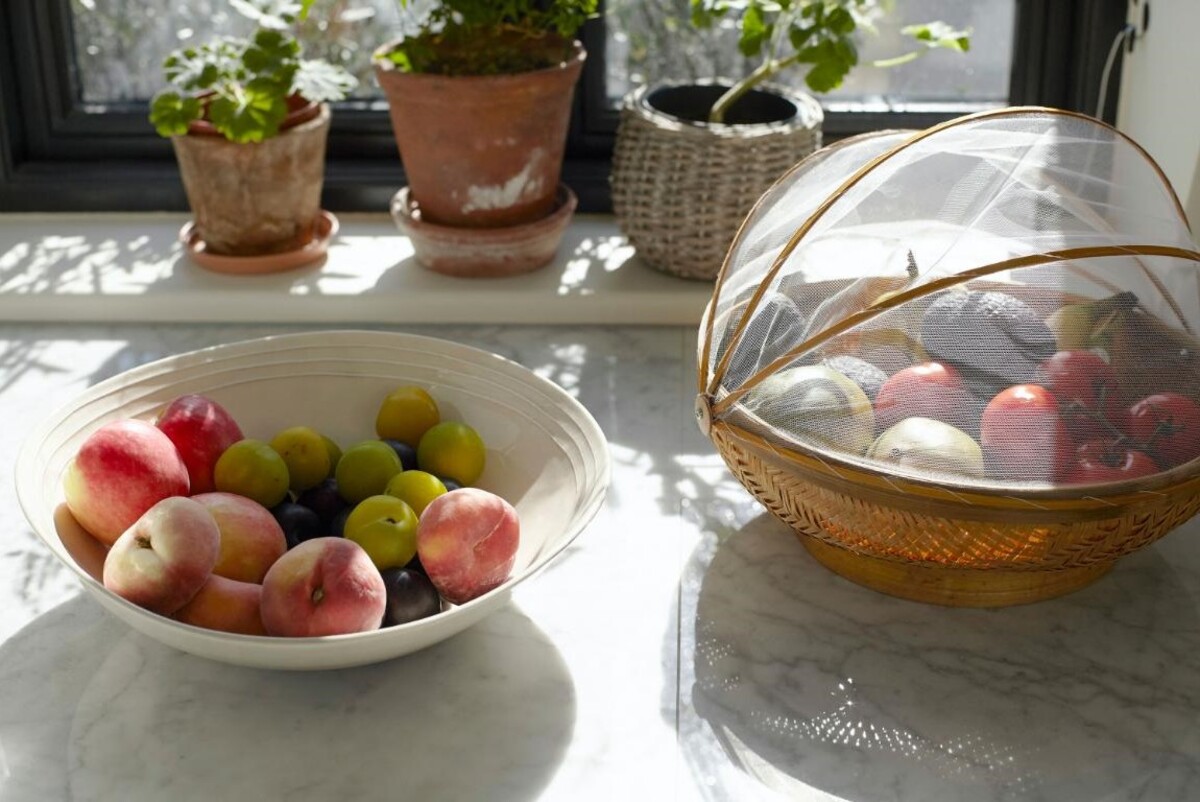
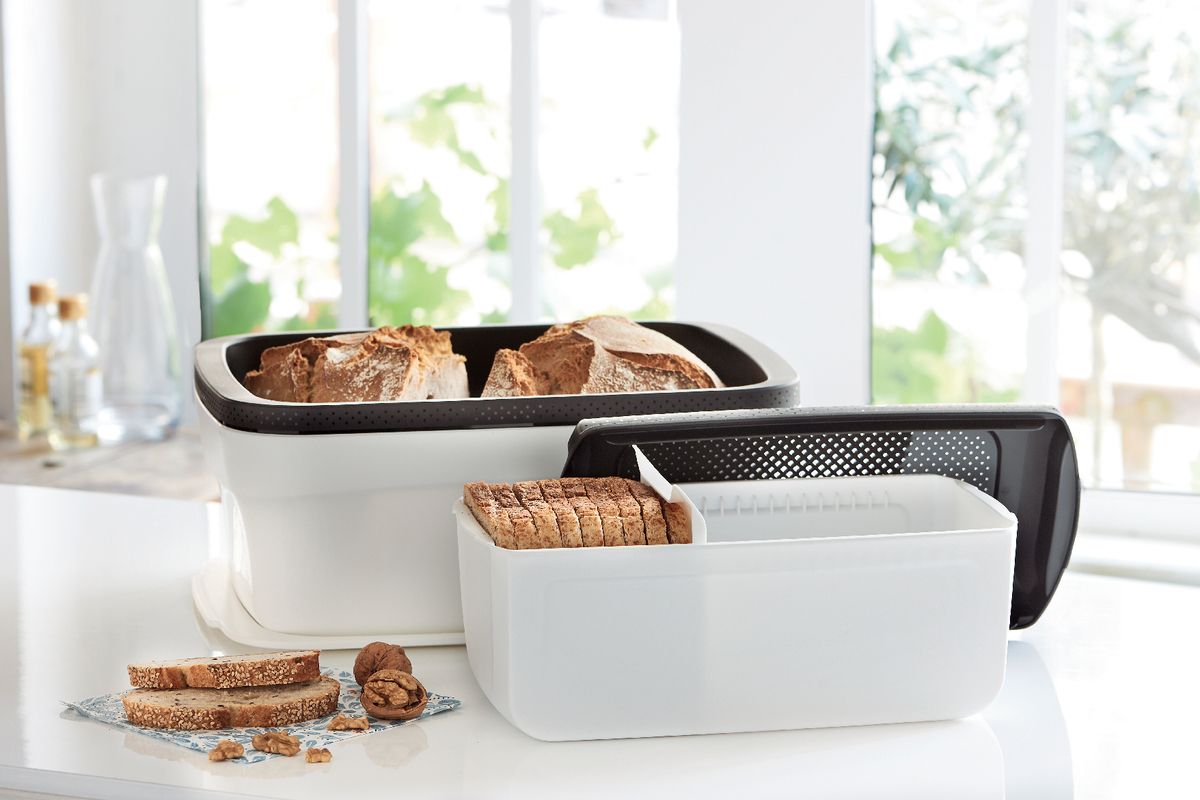
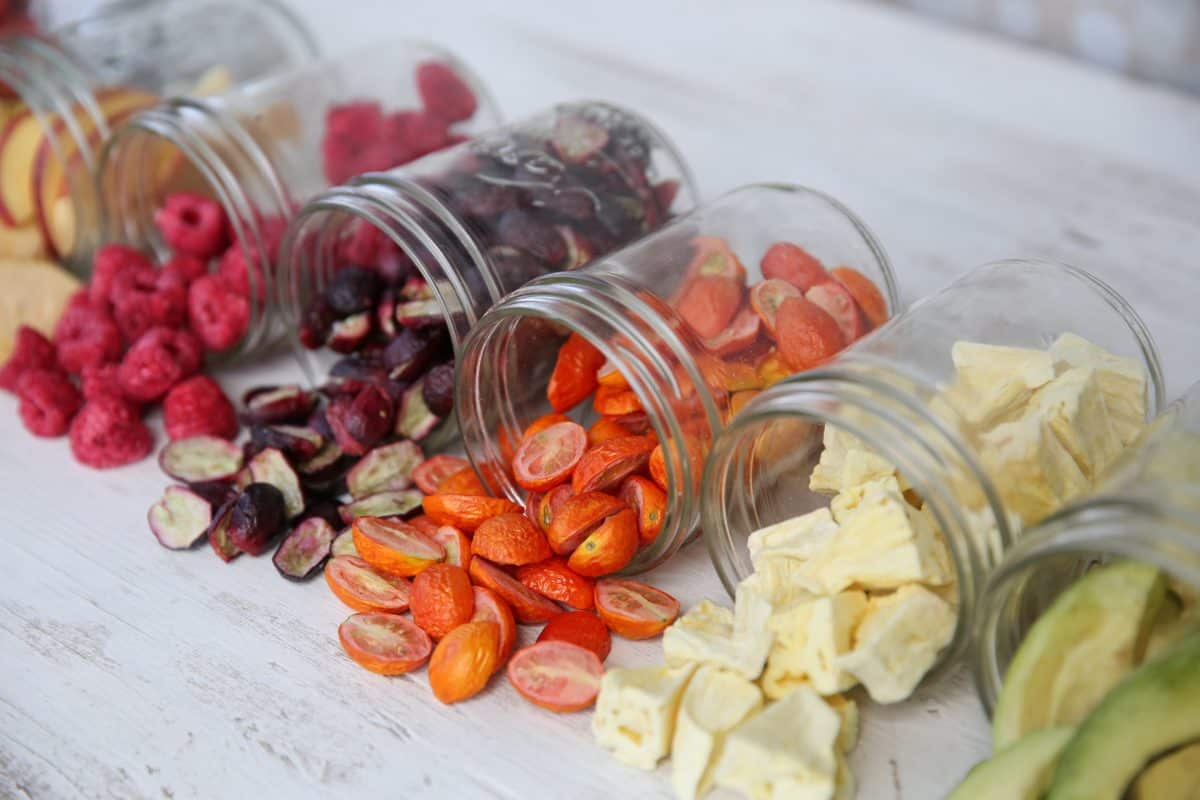
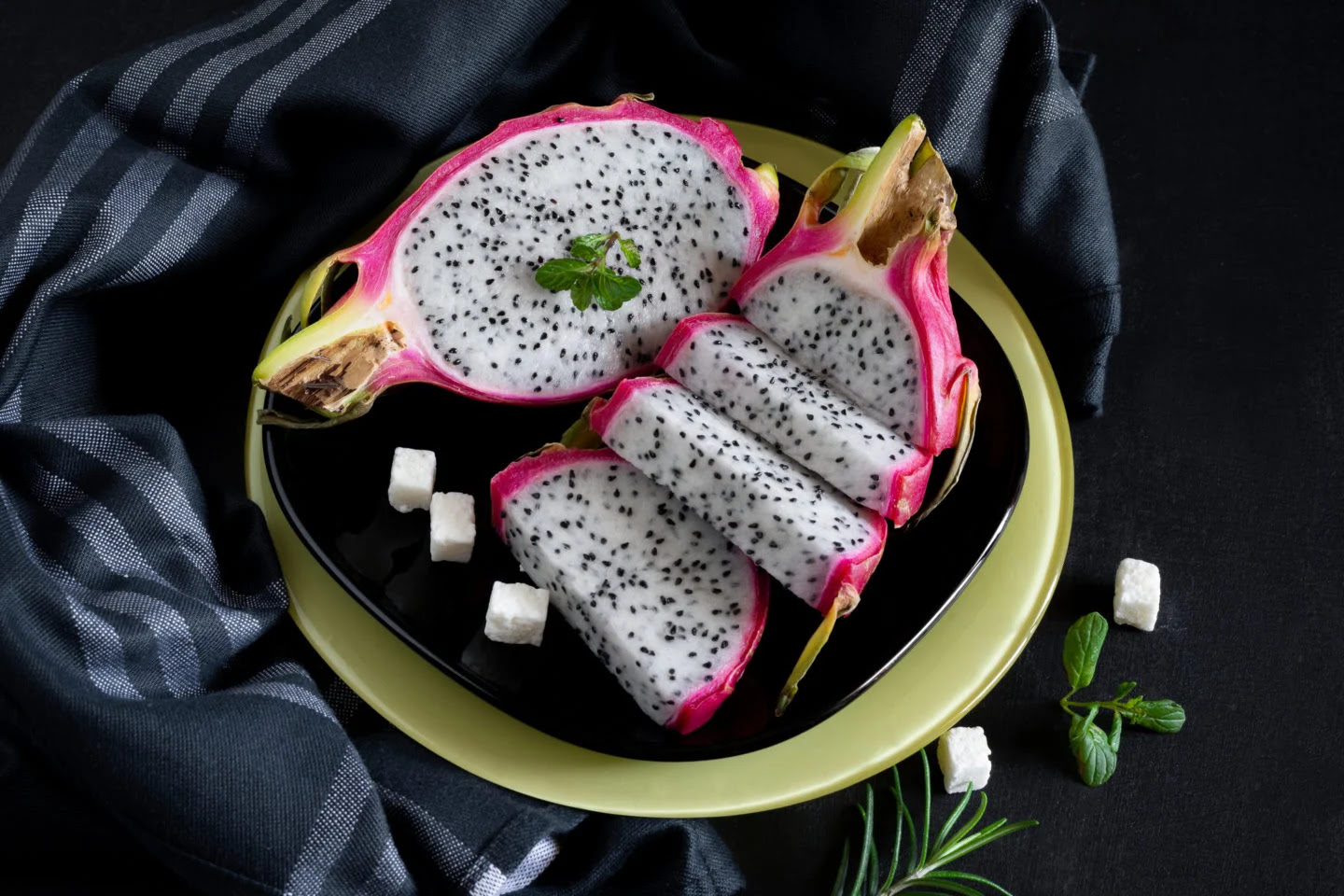
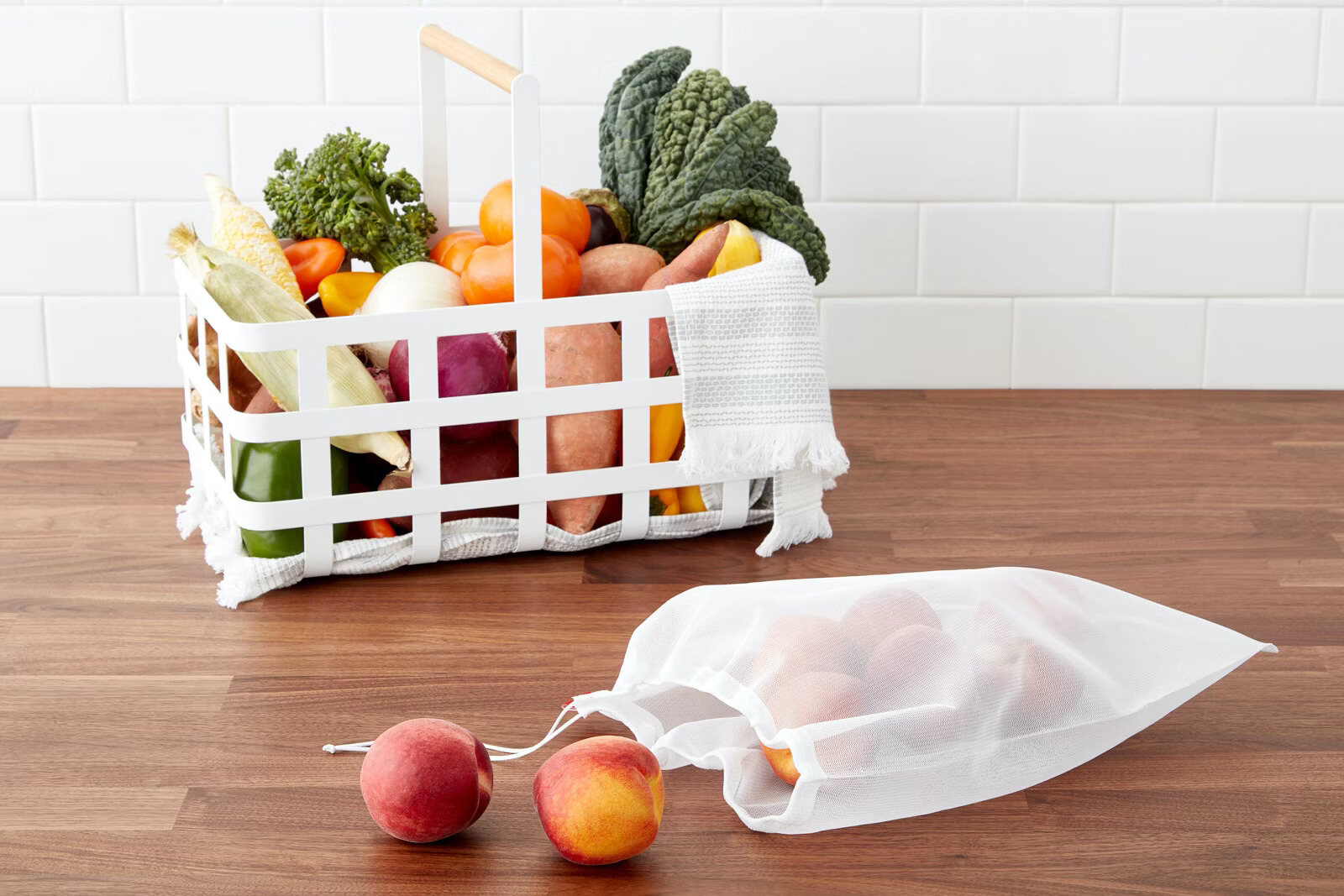
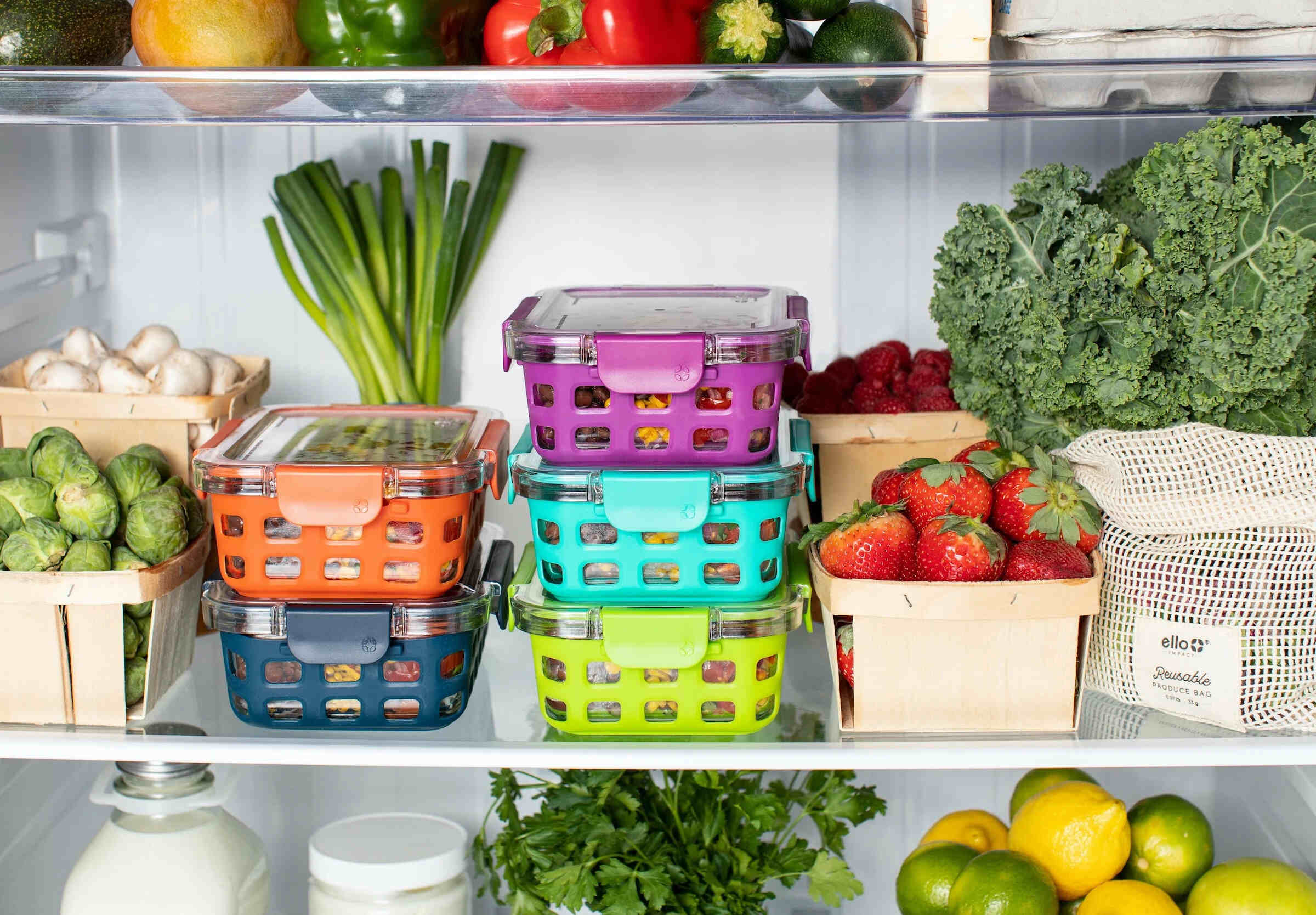
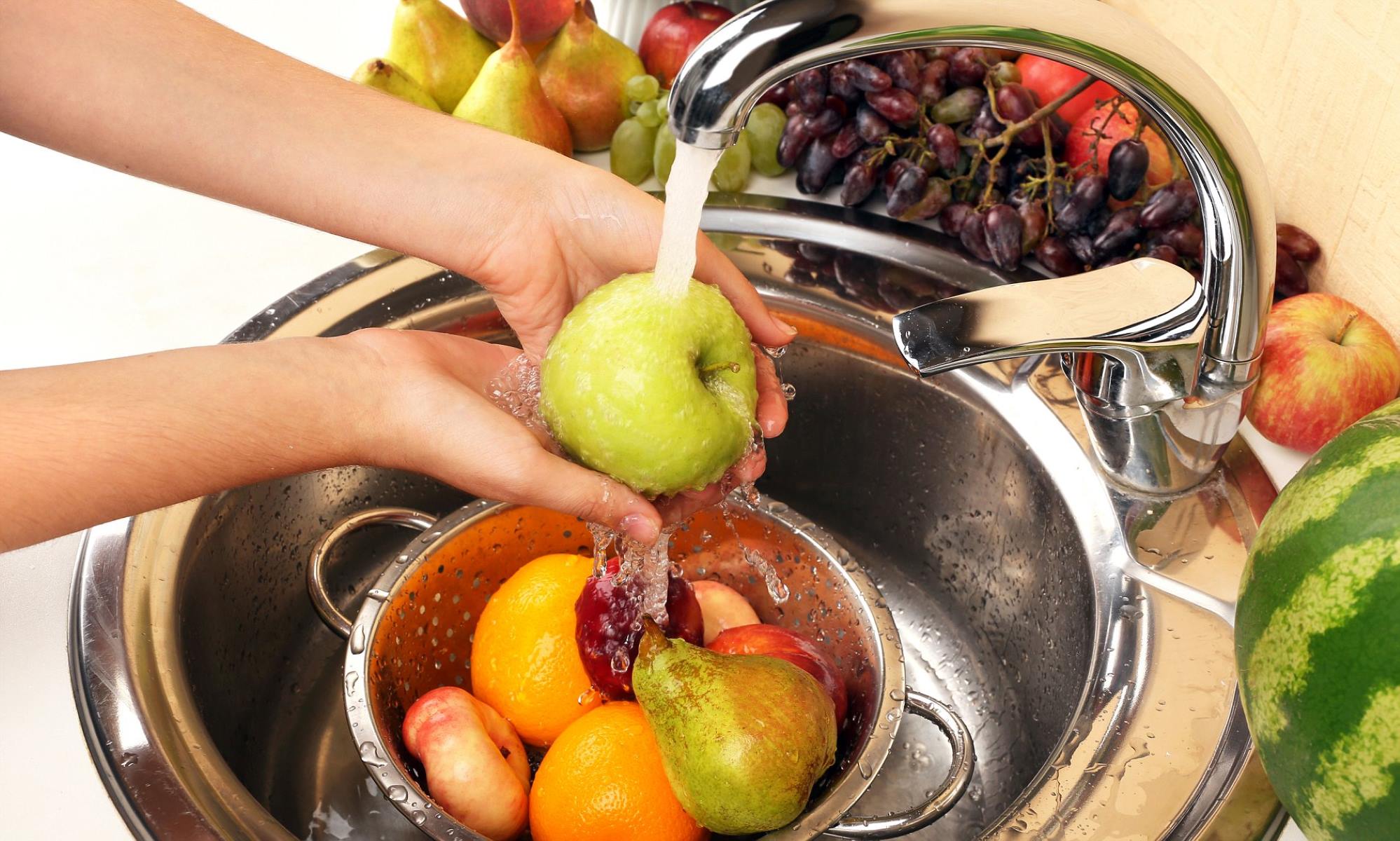

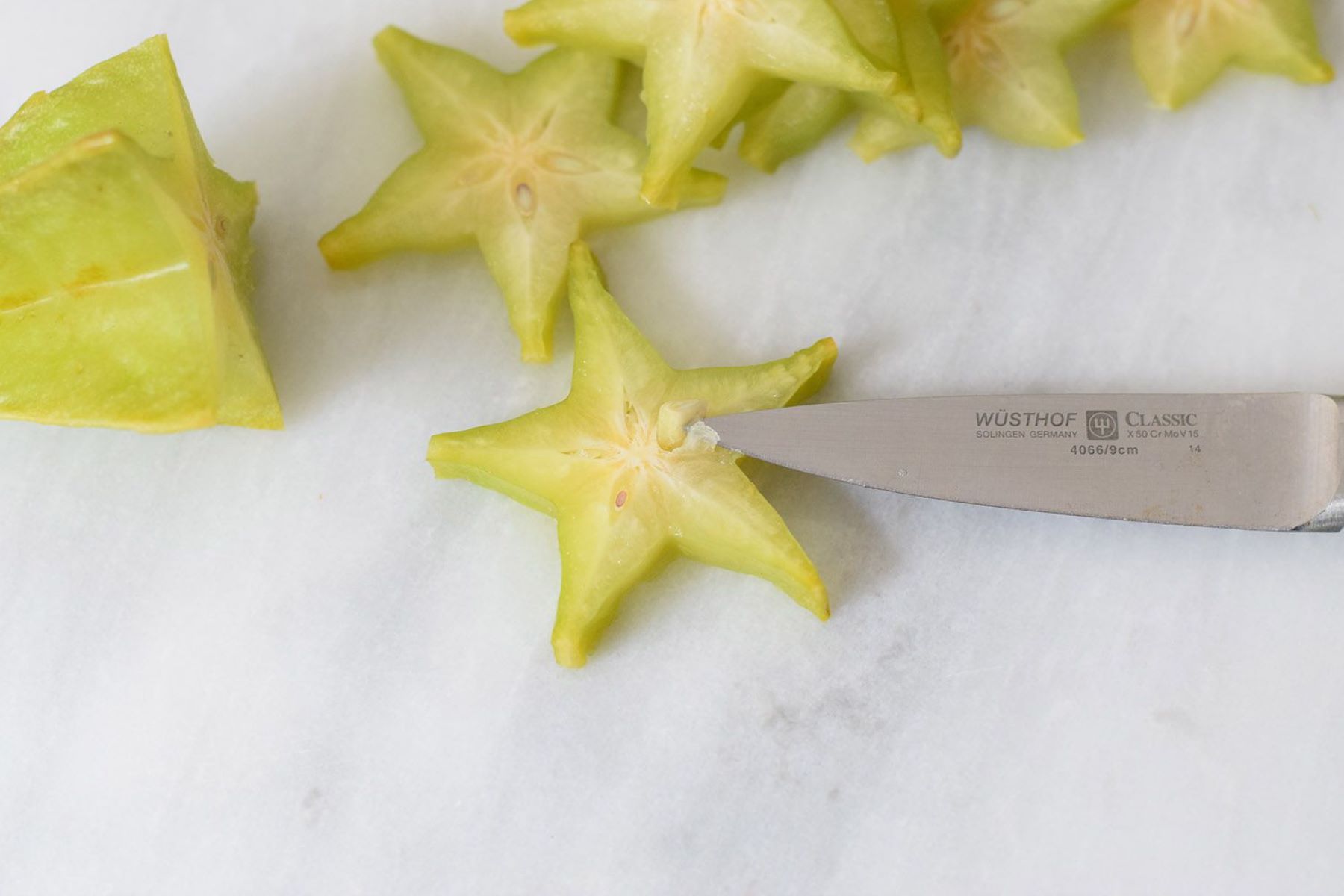

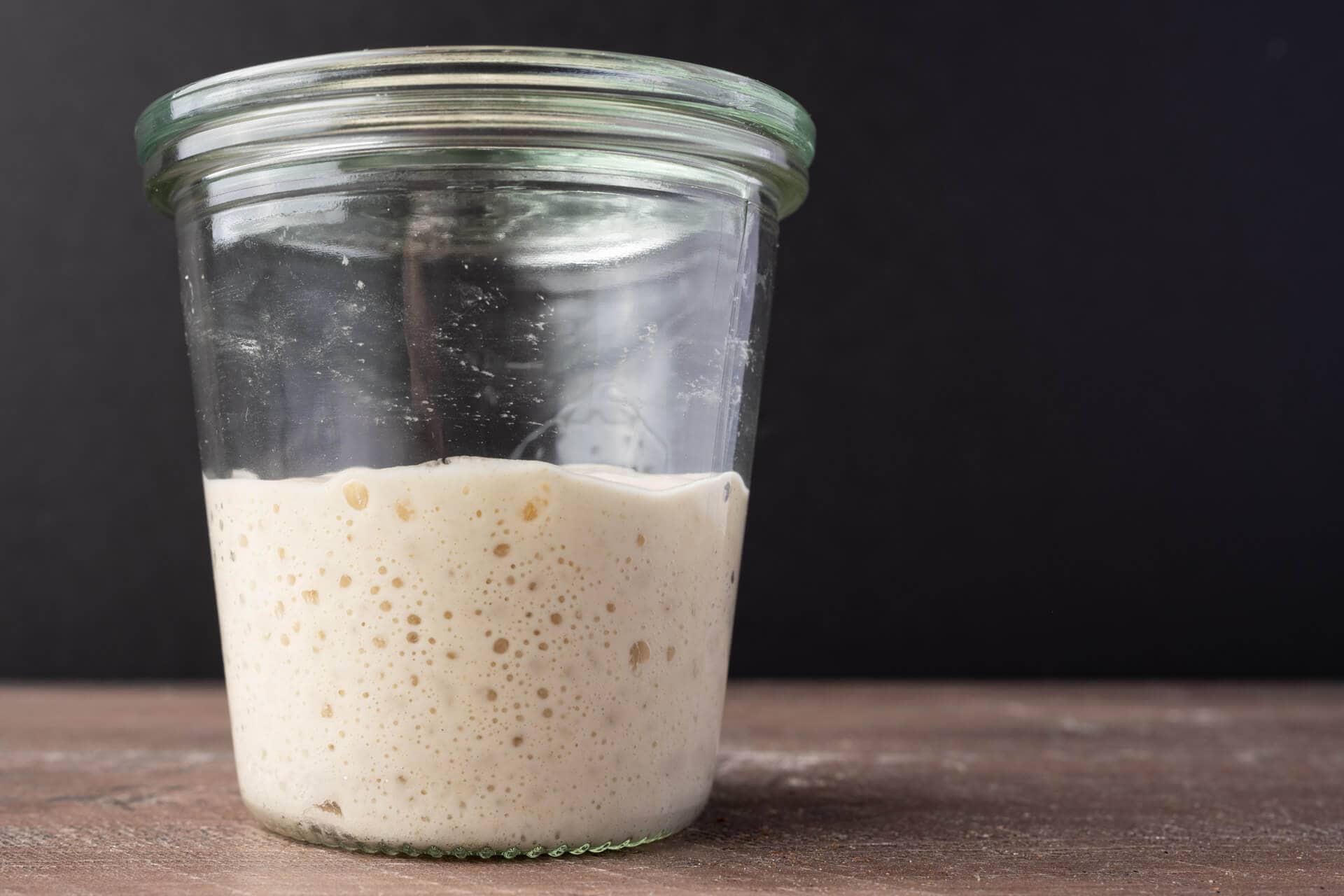
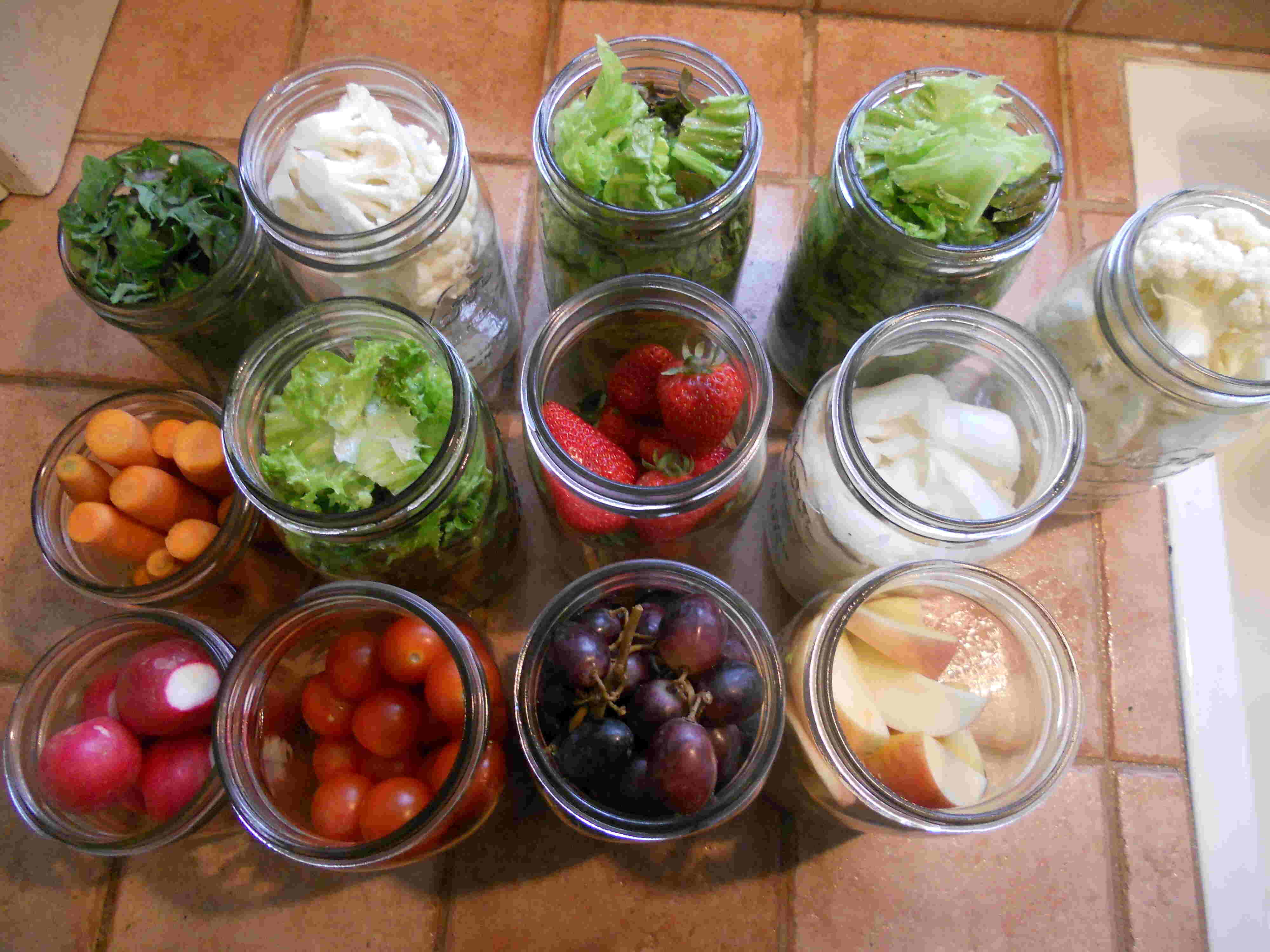

0 thoughts on “How To Store Fruit On Counter”